April 19, 2019
Each year, Earth Day brings millions of people together to take action against threats to our planet, like climate change, desertification, and endangerment of native animal and plant species.
There are plenty of ways we all can give back to the planet: clean up trash, plant a tree, or volunteer for a conservationist effort, just to name a few.
As chefs and restauranteurs, you have another powerful opportunity to give back to the planet every day by using products from regenerative farms on your menu.
By serving products raised using regenerative agriculture (also known as carbon farming), you support a way of farming that fights threats to our planet and contributes to its rehabilitation from decades of industrial farming practices.
When you serve products grown regeneratively, you give back to the Earth by:
Regenerative agriculture can stop and even reverse climate change, which is the result of excess carbon dioxide in the atmosphere. Farming regeneratively builds soil health, and when soil is healthy and full of microbial life, it is able to draw down excess carbon dioxide from the atmosphere where it can be used to grow plant life.
Think of how often you hear about reducing carbon emissions to stop climate change - probably every day. But reducing emissions does nothing for what is already there.
The fact is, even if we all stopped driving cars tomorrow, it would do nothing to fix the excess carbon dioxide already in our atmosphere. We need to put that carbon back into the soil, where it can be used. Regenerative agriculture does that and more.
This video from Kiss the Ground gives a quick primer on how the soil can help reverse climate change:
To produce healthy food for generations to come, we need healthy soil. Sadly, degenerative practices like tilling, chemical use, and overgrazing have left most of our soil degraded and barren.

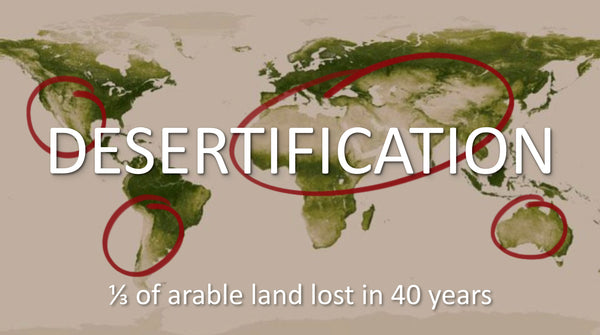
Regenerative farms do not use chemicals or tilling, and use a variety of year-round cover crops to protect the soil from extreme temperatures.
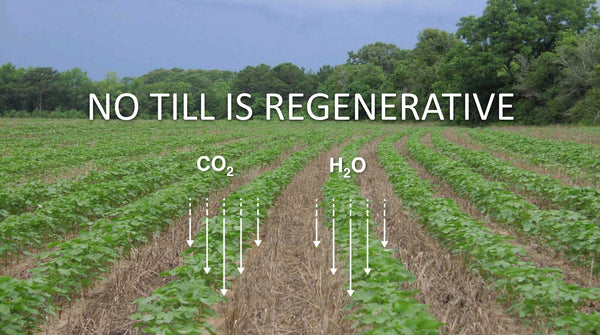
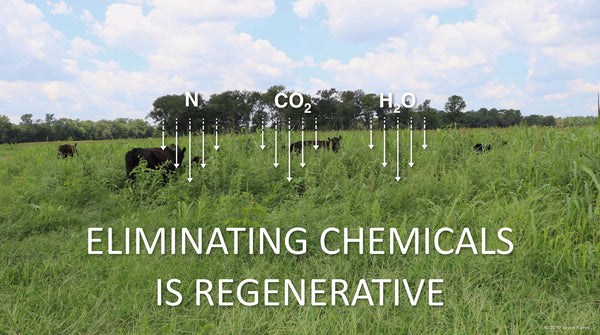
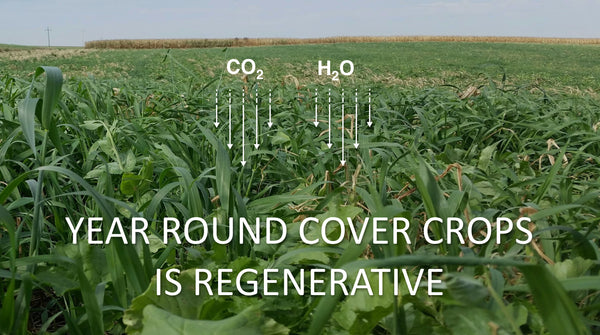
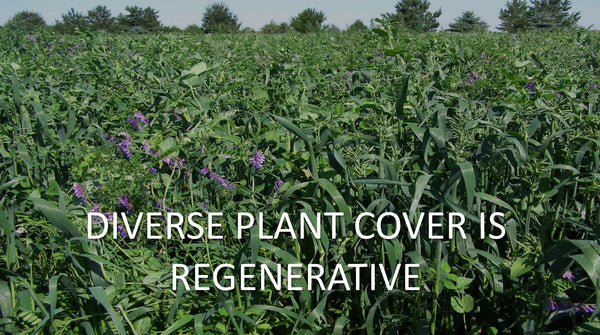
Livestock graze, while naturally fertilizing the land and trampling organic matter into the soil.
Using adaptive grazing methods, the animals are moved to new areas of pasture regularly, allowing plant life to recover and preventing the effects of overgrazing. With a variety of plants, soil life and fertility thrive.
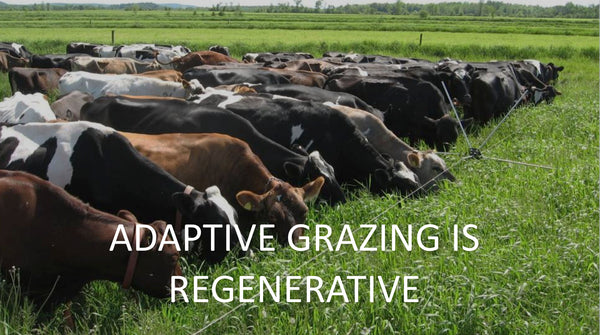
Regenerative farming requires integration of livestock, but that is only successful with animal breeds that fare well in pasture-centered conditions. Old-world heritage breeds are perfect for the pastured life, because they have hearty immune systems (eliminating the need for antibiotics) and flourish on what has always been their natural diet.
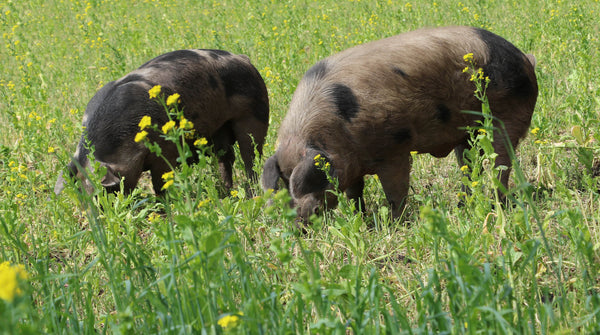
Before the rise of industrial agriculture, these historic breeds were preferred for meat production. Unfortunately, most fell out of favor as high yields became the priority in agriculture. Animals were selectively bred to grow bigger and faster in the name of efficiency and price. As a result, many heritage breeds are now threatened or endangered.
When you use heritage breed products, you help protect these breeds and our planet's biodiversity. For example, our Heritage Old Spot pigs are on the Livestock Conservancy’s list of endangered breeds. As we grow our Heritage Pork program, we continue to breed and grow our herd. In doing so, we are helping to preserve these historic genetics for future generations.
Since regenerative farming does not involve chemicals or pesticides, it does not add harmful toxins to the soil, which also prevents those toxins from running off and contaminating our rivers, streams, and other waterways. As the soil draws in carbon and becomes healthier, overall runoff is reduced because the soil is able to absorb water much more efficiently.
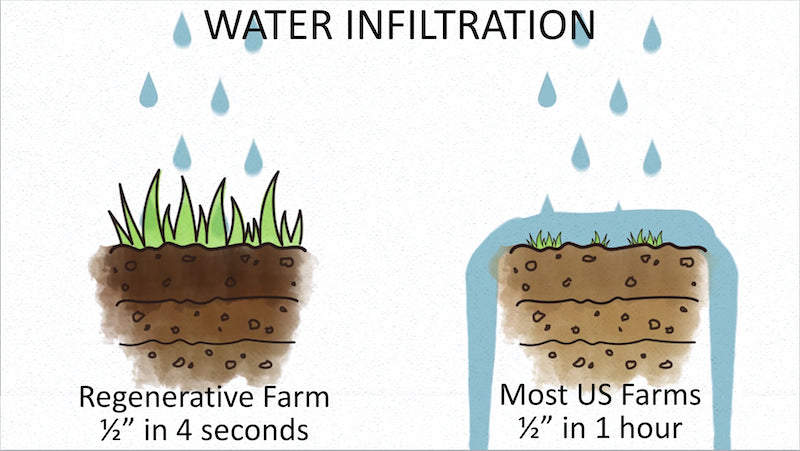
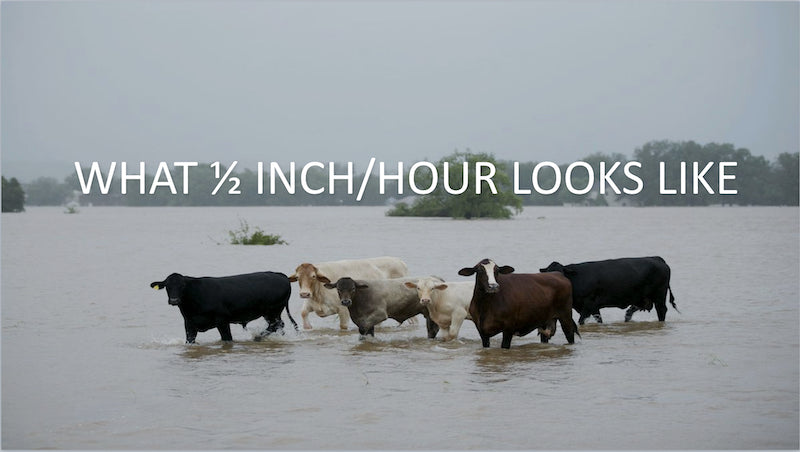
By choosing products from regenerative farms for your menu, like the meat, poultry and game products from Joyce Farms, you can take pride in serving memorable meals that are not only more flavorful and nutritious, but that help save the planet. Now that’s something worth bragging about in your menu notes!
January 14, 2026 2 Comments
Joyce Farms is introducing Signature Angus Heritage Beef, a pasture-raised, single-farm Red Angus program designed to carry our heritage beef story forward and serve more customers over time. Heritage Aberdeen Angus Beef will remain available in limited quantities until early 2026 as existing inventory is sold.
